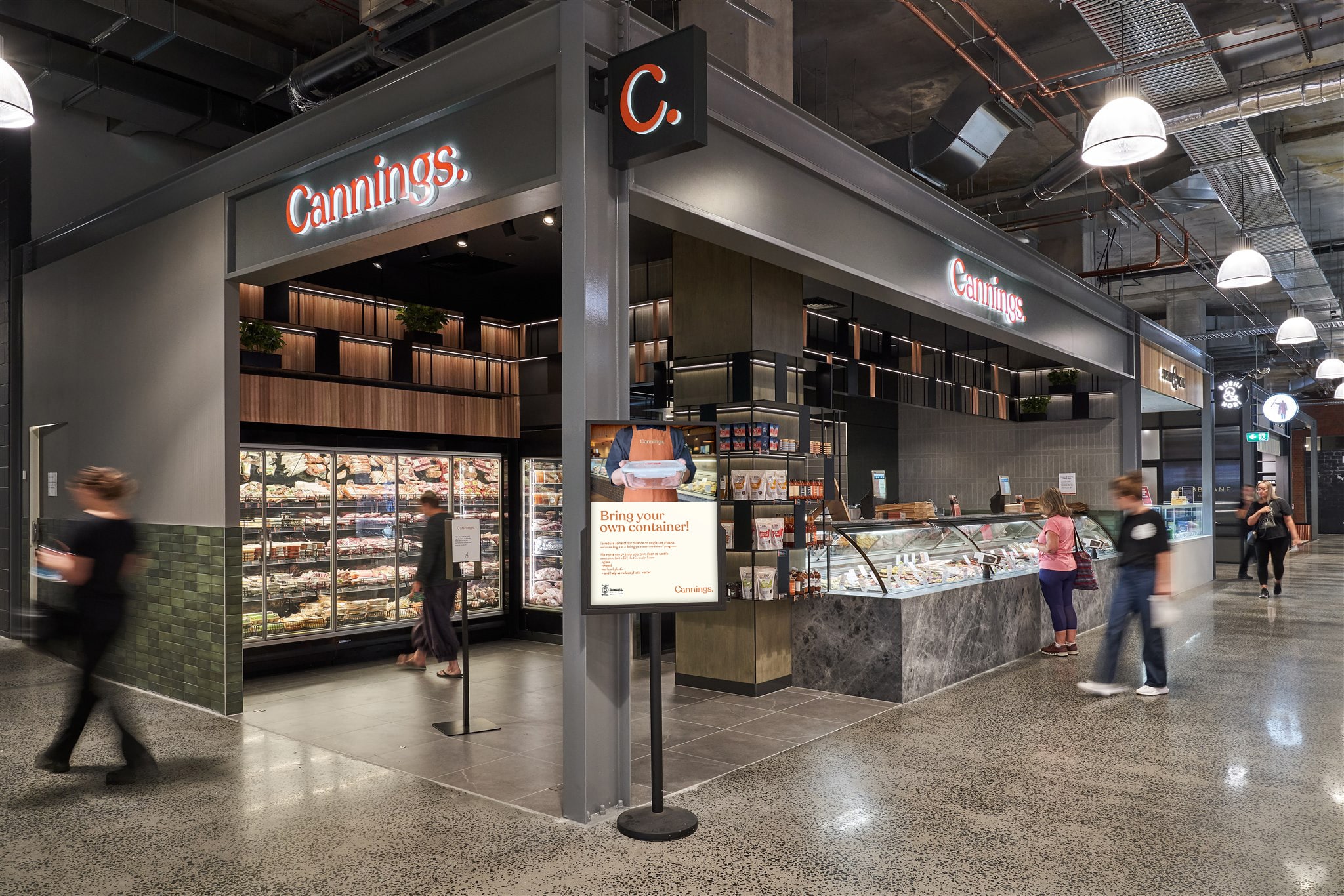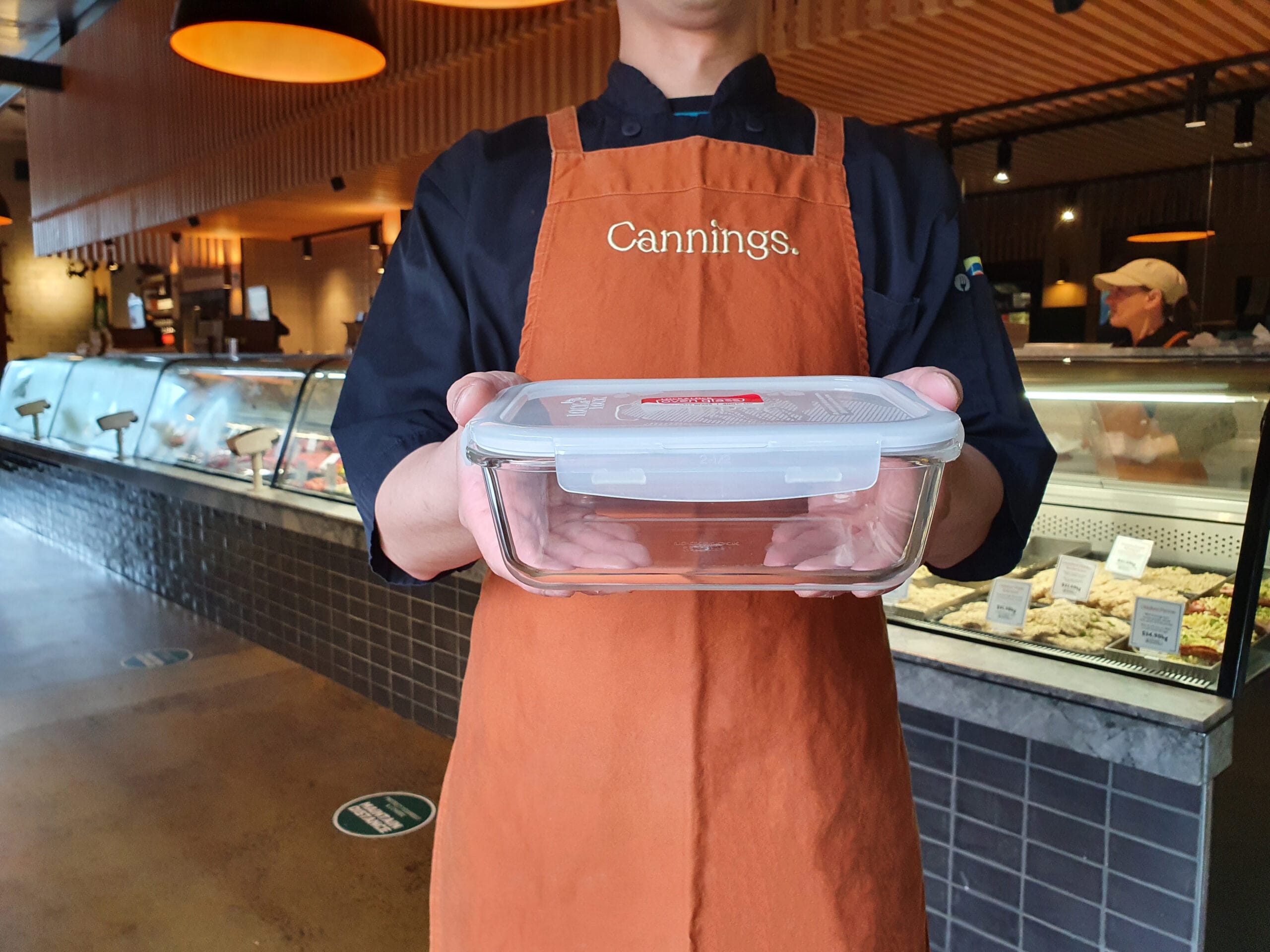Case Study: Cannings Butchers
How Canings Butchers is driving positive change and tackling waste
The amount of packaging and waste in the food industry lead Cannings Butchers to research the role their business can play in the war on waste and helping shift behaviours, one container at a time.
Tell us about your business
We are a group of High Welfare butchers based in the Southeastern suburbs of Melbourne. Our motto is ‘it’s free range or nothing’ and we specialise in grass fed and finished beef and lamb, free range pork and poultry, and AMCS Green Rated Seafood. We have nine stores and an online shop and have over 100 team-members. Since opening in 2010, we’ve been living out the high welfare vision of our founder and CEO Sam Canning, which has seen us partner with some of the region’s best producers and confront some of the realities of meat production at a large scale. We power our locations on renewable energy and have managed to make our stores carbon neutral since 2012. In 2022 we became Australia’s first Butcher to be awarded a B Corp Certification – an global standard for social and environmental performance in purpose driven businesses.
Why do you support customers to shop with reusable containers?
The way we consume, and especially consume groceries, in Australia has a staggering waste footprint – and most of the impact incurred is not even visible to the average consumer. We’ve recently examined our processes and supply chain with keen interest in the hope to reduce the amount of packaging and waste involved. What we’ve discovered has been challenging. While there are many legitimate food safety and spoilage prevention reasons for certain packaging types it is, by and large, too much. While we’re still certainly in the ‘information gathering phase’ one move we could make – in collaboration with our customers – was eliminating some single-use plastics by encouraging BYOC. We like to think we align with the thinking of BYOC evangelists, and with a delicate, perishable product like ours there are many more opportunities to remove packaging.
What did you need to do to set this up?
A lot of research and a lot of due diligence. We looked into delis, supermarkets, grocers, etc. for precedent and struggled to find someone saying with confidence that they’d cracked it for meat. There’s a reason this isn’t as common with meat retailers. The risks of cross-contamination which are present in a butcher-shop extend into this new process, so we had to apply the same safety measures we use back-of-house to mitigate allergen spread, bacterial growth and other concerns. We then sought approval from our regulator PrimeSafe (who oversee the meat industry in Victoria). Ultimately we settled on a system that was pragmatic about food hygiene and prioritises having frank conversations with customers about the duty of care over our meat.
How does bringing your own containers work in your business? Is there a procedure in place?
We have a strict standard operating procedure in our stores that all our customer-facing team-members are trained in. This covers which materials we accept and which ones we don’t (wood, for instance, is deemed by us to be too difficult to clean effectively – plus it’s banned by our regulator), and how to gauge the cleanliness of a given receptacle. There’s then a choreographed process of which utensils touch what and which surfaces are sanitised. All of this goes towards mitigating the flow of cross-contamination in either direction.
How does it make you feel as a business to reduce waste?
Optimistic – I hesitate to say good because this is the very small tip of a very big iceberg, but we hope that what this represents as a symbolic behaviour change will encourage larger conversations about larger changes to come that address more of the waste generated by the food industry.
Do you have advice for other business owners wanting to make a change
Join business associations, collaborate with other businesses, and trade ideas. Environmentalism, waste reduction, and sustainability are not an appropriate arena for commercial competition – it demands collective action and harnessing things like combined buying power. There are resources out there, and in our experience it’s about knowing where to look. Speaking to your local council sustainability officer or waste representative is a great place to start opening up these conversations.
Single-use plastic produce bags and containers cost businesses money. How much do reusables cost your business?
Our current approach to reusables is mostly focused on customers bringing their own containers, so in that respect reusables don’t cost us. These transactions help us forgo the single-use produce bags that would’ve been used and are with customers who have brought their own carry-bag too (eliminating the need for one of our brown paper bags). It’s early days yet in terms of money saved on single-use bags etc, but we look forward to this spreading from its current vocal minority to broad adoption. We prefer to think of this approach as an investment in more sustainable practices and ways of thinking. Additional training and time spent developing these store operating procedures are a small price to pay for us all taking steps towards reducing our footprint.


